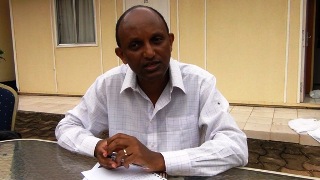Rights body says no amnesty for serious crimes in S. Sudan
June 9, 2014 (NAIROBI) – South Sudan’s peace talks should proceed on the basis that justice for serious crimes was an essential part of any peace agreement, the US-based Human Rights Watch said Monday.

Peace talks mediated by the East African regional bloc (IGAD) is due to resume in the Ethiopian capital, Addis Ababa on 9 June.
“The devastating crimes of the conflict in South Sudan have their roots in the lack of justice for brutal crimes during the long war,” said Daniel Bekele, Africa director at HRW.
“The mediators need to break with the past by ensuring that amnesty for serious crimes is not on the table”, he added.
Violence broke out in the South Sudanese capital in mid-December 2013 and later spread to three of the country’s 10 states. An estimated nearly a million people have since been displaced and about 10,000 killed as the conflict enters its sixth month.
On 23, January, however, the country’s two warring factions signed a cessation of hostilities agreement, which was constantly violated till they recommitted themselves to a similar accord on 9 May in Addis Ababa.
Both warring parties have been accused by both local and international human rights entities of committing atrocities on civilians during the conflict.
For instance the United Nations Mission in South Sudan, in a May 2014 report, said that there are “reasonable grounds to believe that crimes against humanity have been committed during the conflict by both Government and opposition forces.”
However, although the African Union Commission instituted a body of inquiry to investigate these incidences, the UN secretary-general, Ban Ki Moon called for the establishment of a independent hybrid tribunal to probe crimes committed in the country.
ETHNIC DIMENSION
HRW, in its research, reportedly found that forces from both sides have been responsible for serious violations of international human rights and humanitarian law, including war crimes and potential crimes against humanity. It further civilians been targeted allegedly because of their ethnicity, including in gruesome massacres.
“The talks need to address the needs of victims and the importance of justice to long-term peace and security for South Sudan,” Bekele said.
(ST)
